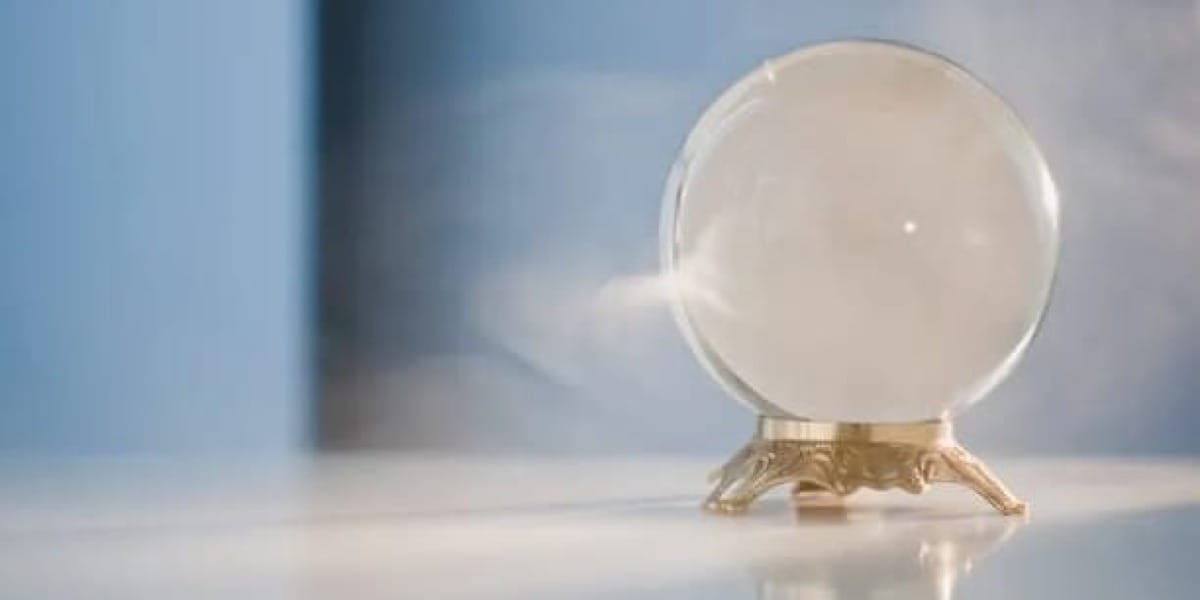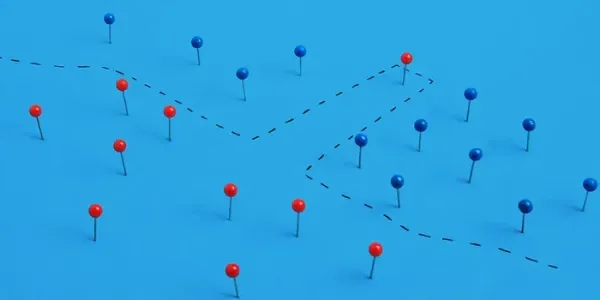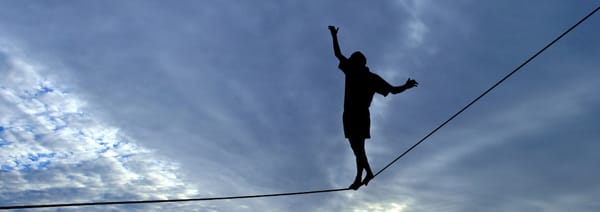The wisdom of Octavia Butler we need right now
Why continuing to try to predict the future in a moment of impossibly heavy uncertainty might be one of our keys to changing course.

Known best for her prescient two volumes of Parable of the Sower and Parable of the Talents written in the mid-1990s, Octavia Butler had a deep, spiritually profound capacity to envision how our social and civic dysfunctions might metastasize beyond our control and whose fictional President Donner (who took office in February 2025) bears an eerie resemblance to our current administration.
The "flood the zone" strategy of the second Trump Administration seems, unfortunately, to be working on a lot of us. I am feeling the weight of these 16 days very differently than 2017. The cognitive load of just processing the constant deluge of immorality and illegality is enormous. And under its weight, making sense of what we're seeing feels almost impossible.
It's painful to watch. It's easy to turn away. It feels impossible to predict what will come next. But here's where good Ms. Butler has some important wisdom for us from an essay written in 2000:
So why try to predict the future at all if it's so difficult, so nearly impossible? Because making predictions is one way to give warning when we see ourselves drifting in dangerous directions. Because prediction is a useful way of pointing out safer, wiser courses. Because, most of all, our tomorrow is the child of our today. Through thought and deed, we exert a great deal of influence on this child, even though we can't control it absolutely. Best to think about it, though. Best to try to shape it into something good. Best to do that for any child.
~ Octavia E. Butler from "A Few Rules for Predicting the Future"
So in this moment of uncertainty and overload, it isn't the prediction that matters: it's the predicting. The act of considering what may come and what our actions today encourage or discourage, enable or disable about that future matters. If today's action becomes tomorrow's habit, how would we feel about that future? What does our present tell us about the kind of child are we raising?
Thugs using coercion to control government is just extortion. Just because they're wearing backpacks and blazers and being tacitly directed by the President doesn't make it something else. It's not bluster or unserious or a negotiation tactic. President Trump, Elon Musk, and his band of merry men are proving that they don't care about the rule of law. Their working assumption that no one will intervene as validation of their permission – that because they can, they are allowed to – is proof that they see the rule of law as an impediment. Watching this painful present makes me certain I don't want the future we're moving toward, deeply concerned about the child we are raising – one who sees a consequence-free world to exploit, who has no concern for others, who believes that their arrogant and self-centered ends justify any means.
So as we watch this upheaval unfold and the damage mount, it forces us to ask, "Who can intervene? The career program manager at USAID? A junior analyst at Treasury? The FBI? No one has ever considered that someone would do this – who is supposed to stop them?" Who could it be tomorrow? What does that person need? What could I do today to be sure that that person can push back tomorrow? What can I do, how can I react in my life to guide my community toward a different future? That predicting can help be our guide on how to be in the present.
The predicting helps me because it keeps me moving, responding, active despite the uncertainty. In the long-term I know that we need to invest in small "d" democratic culture, to raise a child animated by kindness and care and inspired by collective thriving and solidarity. So today, in the short-term without clear answers, I will try to look ahead, to predict what happens if I keep doing what I'm doing, keep thinking what I'm thinking, keep expecting what I'm expecting, and keep accepting what I'm accepting – what future will that ensure? Yes, we look for ways to reclaim ground, to reach for the levers of the law, to press structures and processes that may delay and push back against the thuggery. And if we don't want a future of careless lawlessness and thuggery, we also have to do the things that take us toward a future we actually want – be open and kindhearted as safely as possible, argue and oppose without being cruel, protect the defenseless, hold your values tightly and opinions loosely and be careful about the distinction, try not to let your demons drive your response to their demons – the things that nurture that kinder child who loves community.
Last updated: 07 Feb 2025




